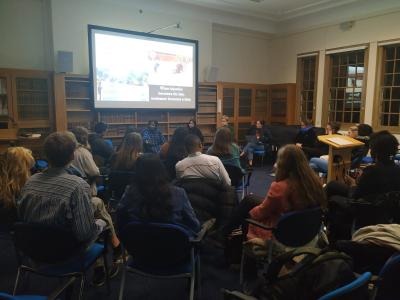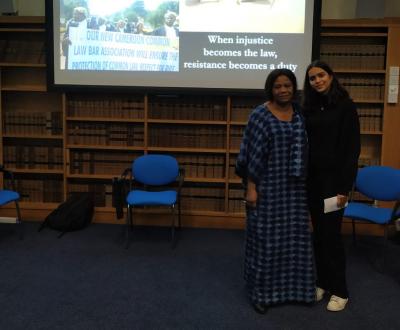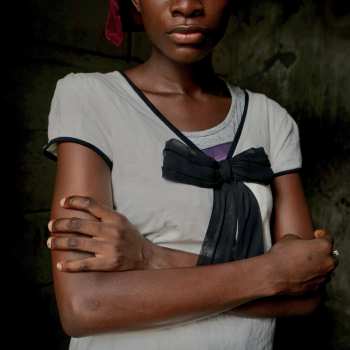
Caroline Mbinkar co-founded ‘ALL for Cameroon’, a pro bono law chambers, in 2009. Its aim is to offer free legal advice and representation to the marginalised and vulnerable in Cameroon. By 2009, this task was already a formidable one. The marginalisation of anglophones in Cameroon had been deeply ingrained, with its roots in the country’s colonisation by Britain and France in 1916. The colonisers had divided the country in two, imposing their own systems onto their respective autonomous states. Yet, following the independence of the French-speaking territory in 1960, the English speakers in the British territory joined the newly independent French state the next year, out of limited choice. Anglophones being the minority, and holding minimal government positions, were agitated at the outset of this fusion due to the strong likelihood of being marginalised and targeted by the Francophone majority. This agitation proved to be justified. When the predominantly French-speaking government sent French magistrates, trained in the civil law system, to preside over English common law courts in 2016, Caroline Mbinkar rose to the frontline of the resistance movement. She joined other lawyers who donned their wigs and gowns, and took to the streets to peacefully protest this form of blatant and harsh assimilation.
Caroline’s role as a barrister and human rights activist has given her a glaring exposure to the rapid deterioration of the events that followed. When frustrated civilians joined the protests, they were confronted with a brutal military response. Caroline herself offered first-hand accounts of deaths at the hands of the military – of children, of pregnant women. Although Cameroon might be described as on the brink of a war, there are undoubtedly war-like impacts felt at every level within society: destroyed schools and hospitals, the military’s indiscriminate killings, the displacement of thousands. As it stands today, Cameroon is experiencing the violence of war and greater recognition of the plight of civilians is urgently needed.
In light of this, what truly stunned many members of the audience was the silence of the international community. Futile efforts to resolve the conflict perpetuate its escalating dangers. It is disappointing, but not surprising, to see the conditions in Cameroon worsening as a result. Caroline stressed that civilians are becoming progressively radicalised in response to increasingly aggressive military tactics: “if you ask

In short, if you care about the damage this conflict is causing, then start manifesting that by shedding light on the reality of Cameroon to others. And if you don’t care, then start caring. As Caroline Mbinkar taught us at the event, when you are silent, you too are responsible.
The full talk delivered by Caroline can be viewed below:
Share:

